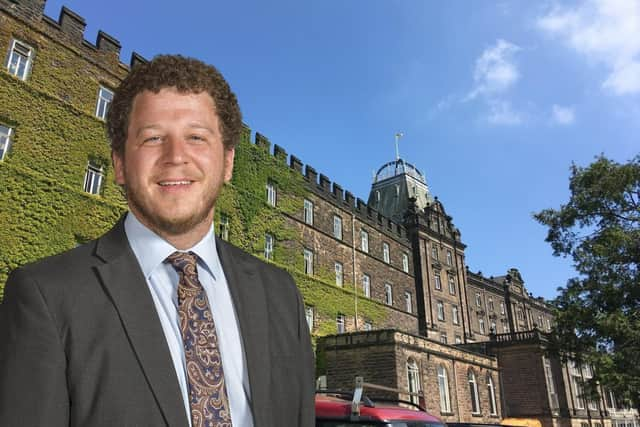Derbyshire council chiefs apologise after disabled child refused free school transport
and live on Freeview channel 276
Derbyshire County Council’s Cabinet officially approved proposed changes to its Home to School Transport Policy for Children of Compulsory Age during a Cabinet meeting at County Hall, in Matlock.
An unnamed mother of a wheelchair-dependent child was found to have been refused free school transport by the council because the ‘walking distance’ from the youngster’s home address was less than three miles, and because the council claimed there was no evidence which showed the youngster could not be pushed to school.
Advertisement
Hide AdAdvertisement
Hide AdBut the Local Government and Social Care Ombudsman identified two aspects of the council’s policy which had fallen short of statutory requirements concerning a reference to the use of wheelchairs and mobility aids when considering ways a person could ‘walk’ to school, and a reference to ‘walking distance’ for youngsters when determining eligibility for youngsters with special needs or mobility issues.


Councillor Alex Dale, Cabinet member for Education, accepted there would need to be a ‘retrospective change’ with policy amendments in line with the recommended findings by the LGSCO.
He said: “We are going to be conducting a more in-depth review of transport policy as a result of this and it will probably come back in a few months.”
The LGSCO stated children are eligible for free home-to-school transport if they are either children with special educational needs, a disability or a mobility difficulty, have an unsafe school route, live beyond a statutory walking distance and come from a low income family – but when considering mobility grounds there is no requirement to consider the statutory walking distance.
Advertisement
Hide AdAdvertisement
Hide AdIt added that the Education Act makes no reference to the use of mobility aids and it defines an eligible child as one with special educational needs, a disability or mobility problems who ‘cannot reasonably be expected to walk to school’.
The council policy had stated it would provide transport assistance to children with special educational needs or mobility problems whose school is within the statutory ‘walking distance’ of their home only if the council is satisfied that they cannot reasonably be expected to walk to school because of their mobility problems or because of associated health and safety issues related to their special educational needs or disability.
However, the LGSCO stated the policy was not in line with the Education Act and statutory guidance as the general criteria such as the ‘statutory walking distance’ should not be considered when assessing transport needs of children who are eligible due to special educational needs and, or disability.
The Education Act states councils must make transport arrangements for all children who have special educational needs, a disability or mobility problems who cannot reasonably be expected to walk to school, according to the LGSCO.
Advertisement
Hide AdAdvertisement
Hide AdDerbyshire County Council agreed to undertake a review of its Home to School Transport Policy for Children of Compulsory School Age in relation to children with special educational needs and mobility problems so that it was in line with the Education Act 1996.
And it has also agreed the policy should no longer apply the general criteria such as the ‘statutory walking distance’ to children with special educational needs, mobility problems, and who use a wheelchair and other mobility aids.
The council cabinet recommended approval of the proposed amendments to the council’s Home to School Transport Policy for Children of Compulsory School Age to ensure compliance with statutory responsibilities and officers have now incorporated the proposed amendments into an updated version of the policy.
Derbyshire County Council has also agreed to arrange transport assistance for the youngster who was subject to the LGSCO investigation, apologise to the child’s family, and make a payment for the trouble and distress caused.
Advertisement
Hide AdAdvertisement
Hide AdIt also aims to provide training and guidance to its school transport staff and appeal panel so they can carefully consider new transport applications for children with special educational needs, disabilities, and mobility issues.
As a result of the LGSCO investigation, it was also found the council had refused another application for home to school transport for another youngster by applying the wrong criteria contrary to the Education Act.
The council has also contacted and offered a suitable remedy to the applicant of this other child who was also wrongly refused free home to school transport.